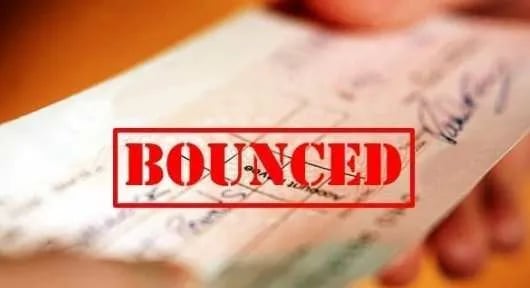AdVocate harshit Sachar | chamber no: 617 | district courts ludhiana | 2817 gurdev nagar ludhiana | ✆+91 7889228369
Cheque Bounce & Corporate Disputes – Legal Process Explained
Cheque dishonour cases under Section 138 of the Negotiable Instruments Act are among the most common disputes faced by businesses in India, with serious financial and legal consequences.
CIVIL LAWSCOMMERCIAL CASE LAWCHEQUE BOUNCE
Advocate Harshit Sachar Ludhiana
10/7/20252 min read


Introduction
In the corporate world, smooth financial transactions are the backbone of business operations. However, disputes often arise when cheques issued by one party are dishonoured by the bank. A cheque bounce not only disrupts business relations but also has strict legal implications under Indian law.
The Legal Framework – Section 138 NI Act
Cheque dishonour is governed by Section 138 of the Negotiable Instruments Act, 1881, which makes it a criminal offence. If a cheque is returned unpaid due to reasons such as insufficient funds, mismatched signatures, or account closure, the law provides the payee with specific remedies.
Procedure in Case of Cheque Bounce
Notice to Drawer – The payee must issue a legal notice within 30 days of the cheque being dishonoured, demanding payment.
15 Days to Respond – If the drawer fails to make payment within 15 days of receiving the notice, the payee gains the right to approach the court.
Filing of Complaint – The complaint must be filed within 30 days after the expiry of the notice period.
Criminal Proceedings – Upon filing, the District Court can summon the drawer, and the case proceeds as a criminal trial.
Corporate Impact of Cheque Bounce Cases
For businesses, cheque dishonour has consequences that go beyond a single transaction:
Cash flow disruption affecting suppliers, employees, and vendors.
Damage to business credibility, especially in long-term partnerships.
Legal costs and time spent in litigation.
Criminal liability for company directors and signatories of the cheque.
Judicial Approach
Courts across India have emphasized that cheque dishonour cases are not merely punitive but are meant to reinforce the credibility of financial transactions. The Supreme Court has also introduced procedural guidelines to reduce delays and ensure faster resolution of Section 138 cases.
Preventive Measures for Corporates
Drafting clear agreements with payment timelines.
Using bank guarantees or escrow mechanisms for high-value transactions.
Ensuring proper board authorizations and internal checks before issuing cheques.
Regularly reconciling accounts to avoid dishonour due to oversight.
FAQs
Q1. Is cheque dishonour always a criminal offence?
Yes, Section 138 treats it as a criminal offence, punishable with imprisonment up to 2 years, fine up to double the cheque amount, or both.
Q2. Can directors of a company be held liable?
Yes, directors or officers responsible for the conduct of business at the time of issuing the cheque may be held personally liable.
Q3. Can a company settle cheque bounce cases out of court?
Yes, many such disputes are settled through mediation or compromise, saving time and litigation costs.
Q4. How fast are such cases resolved?
Although cheque bounce cases are intended to be summary trials, delays often occur due to procedural hurdles. However, recent Supreme Court guidelines aim to ensure faster disposal.
Services
Sachar Law Firm – Advocate, Lawyer, Attorney & Solicitor Services in India | Ludhiana, Punjab.
Expert legal advice across various practice areas - Civil, Criminal, Divorce and Matrimonial, Consumer and Corporate laws, Bail Matters, Property Contract Disputes, Insurance claim disputes, cyber Crime cases, Cheque bounce, Family Divisions, Arbitration. Bail Matters, Electricity Board Cases, Appeals before Session court Ludhiana, Marriage certificate, Court Marriage, Succession Certificate Accident Claim (MACT), NRI Legal Matters, NRI Property Matters.
“Get in Touch with Sachar Law Firm”
Quick Links
© 2025. All rights reserved.
Advocate Harshit SACHAR
Legal Blog
2817, 1st Floor , Gurdev Nagar, Ludhiana, Punjab -141001
Address: Office Cum Res:
Corporate Liquidation and Recovery Litigation
☎️ 0161 7965410
